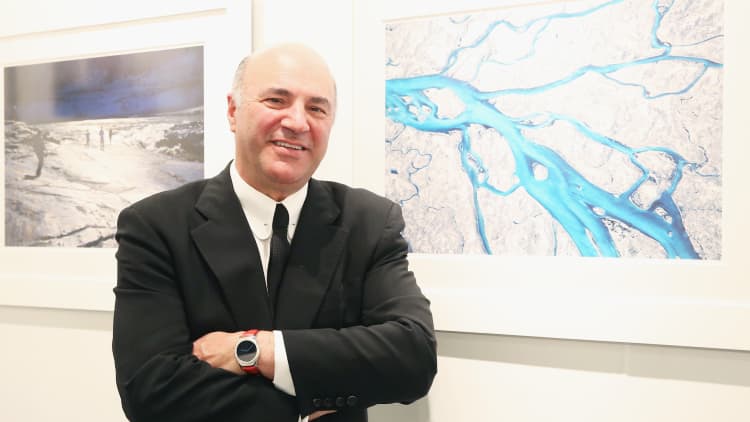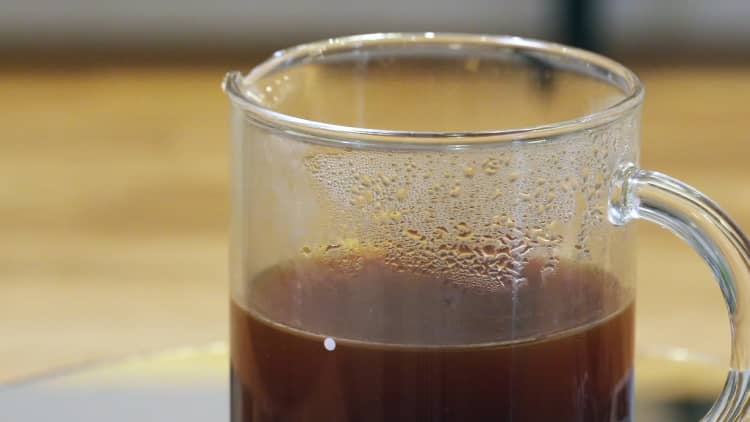Wake up, drink coffee. Get to work, drink coffee. Afternoon slump, drink coffee. Post-work event, drink coffee. If you're anything like the 85 percent of American adults who drink caffeine on a daily basis, your cup of joe or tea is a critical habit that helps you get through the day.
But most caffeine addicts might be shocked to learn that the way they're currently consuming caffeine might actually be sabotaging their productivity instead of giving it a boost, say former Google tech designers Jake Knapp and John Zeratsky.
"Caffeine is a (mildly) addictive drug, so even small unintentional behaviors like drinking a cup just to have a reason to get up from your desk can quickly become chemically reinforced habits," Knapp and Zeratsky write in their upcoming book, "Make Time: How to Focus on What Matters Every Day," out on September 25.
The two technologists — who spent years designing some of today's most "addictive tech services," including Gmail and YouTube — realized they had become victims of their own routines after leaving Google. They wasted countless hours trying to reach inbox zero, scrolled endlessly through social media status updates and chugged coffee as they struggled to accomplish their goals.
At one point, the two decided to experiment with their own habits and routines to optimize their energy and focus. They made small changes in their day to win back time in their schedules. This process helped them devise a better framework for a range of daily habits. Experimenting with their frameworks and customizing them for your lifestyle can help you maximize the time available in any given day.
The Google veterans suggest these five steps to help you get the most out of your coffee drinking and be more productive.
1. Wait to caffeinate
In an attempt to wake you up, your body releases high levels of cortisol, also known as the "stress hormone."
"When cortisol is high, caffeine doesn't do much for your body (except for temporarily relieving your caffeine addiction symptoms)," the writers note.
Given that most people's cortisol levels are highest between 8 a.m. and 9 a.m., Knapp and Zeratsky recommend having your first cup of coffee at 9:30 a.m. "Caffeine is powerful stuff, and because it has a direct effect on your energy level, you should drink it with intention rather than on autopilot," they write.
2. Have that second cup of coffee before it's too late
We don't feel tired just because of our body's biological clock. A buildup of adenosine molecules in the body tell the brain to slow down and feel sleepy or groggy. Caffeine actually doesn't give you an energy boost, but rather it prevents your energy from dipping from adenosine-induced sleepiness, Knapp and Zeratsky write.
"The tricky thing about caffeine is that if you wait to drink it until you get tired, it's too late."
Chart from "Make Time" by Jake Knapp and John Zeratsky
A lot of people's energy level goes down right after lunch, so the writers recommended having coffee or your second caffeinated beverage around 30 minutes in advance of that anticipated crash.
3. Caffeinate and take a quick nap
If you couldn't drink that second cup of coffee in time, Knapp and Zeratsky recommend an alternative: taking a nap. They say once you hit that lull in your day, let your body get tired, drink some caffeine and immediately take a 15-minute nap.
"The caffeine takes a while to be absorbed into your bloodstream and reach the brain," the authors note. "When you wake up, the receptors are clear [of adenosine] and the caffeine has just shown up. You're fresh, recharged, and ready to go."
Zeratsky says this "high-yield way to take advantage" of coffee's benefits can give him around two hours of focused energy.
4. Drink tea or espresso in the afternoon
Instead of drinking a big cup of coffee, which has a high dose of caffeine, the technologists recommend having green tea or espresso, which have lower doses of caffeine.
"This keeps your energy level more consistent and steady throughout the day, avoiding the energy peaks and valleys you get from something super caffeinated like coffee," they write.
One cheap and easy way to do this is to "buy a box of green tea bags, substitute two or three cups of tea for every cup of coffee you would normally have." Espresso, on the other hand, is "comparable to half a cup of coffee or two cups of green tea."
5. Time your last drink
Knapp and Zeratsky note that the half-life of caffeine is five to six hours, which means that if you drink coffee at 4 p.m. only half of it will be out of your system come 9 or 10 p.m. If there is coffee in your bloodstream, you'll likely feel too wired to go to sleep.
"You've got to experiment to figure out your own unique 'last call for caffeine,' but if you have trouble sleeping, your last call might be earlier than you think."
Like this story? Like CNBC Make It on Facebook!
Don't miss:



